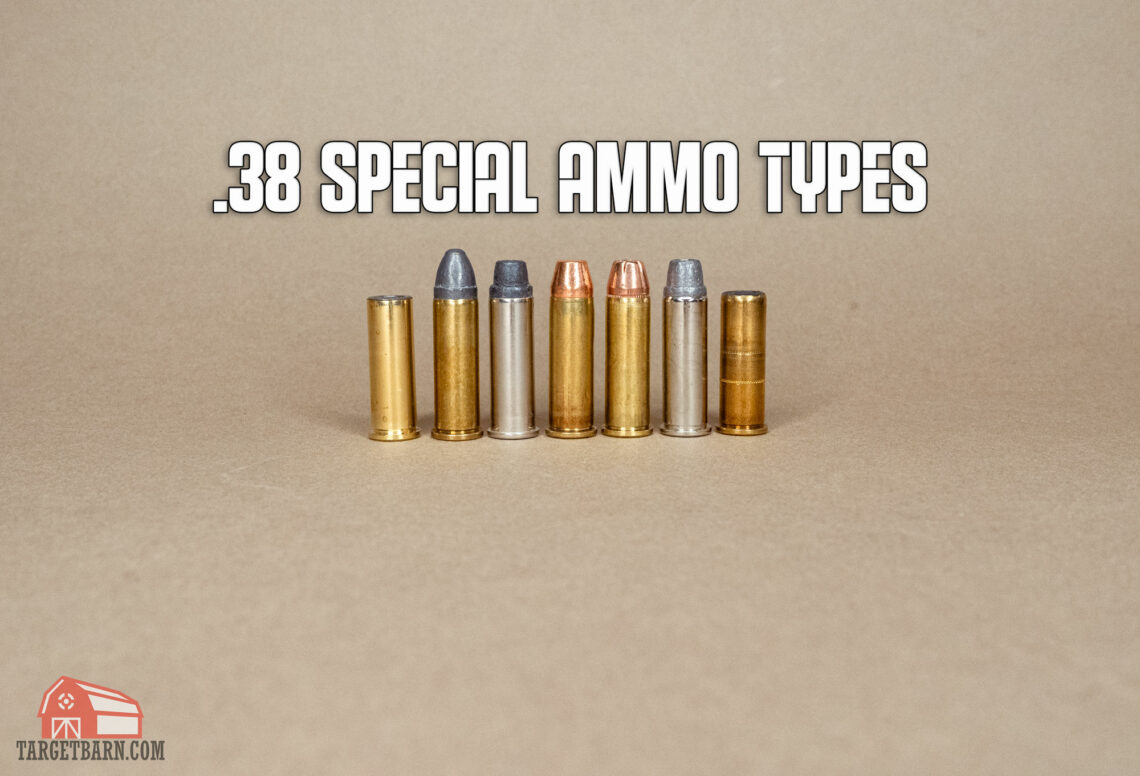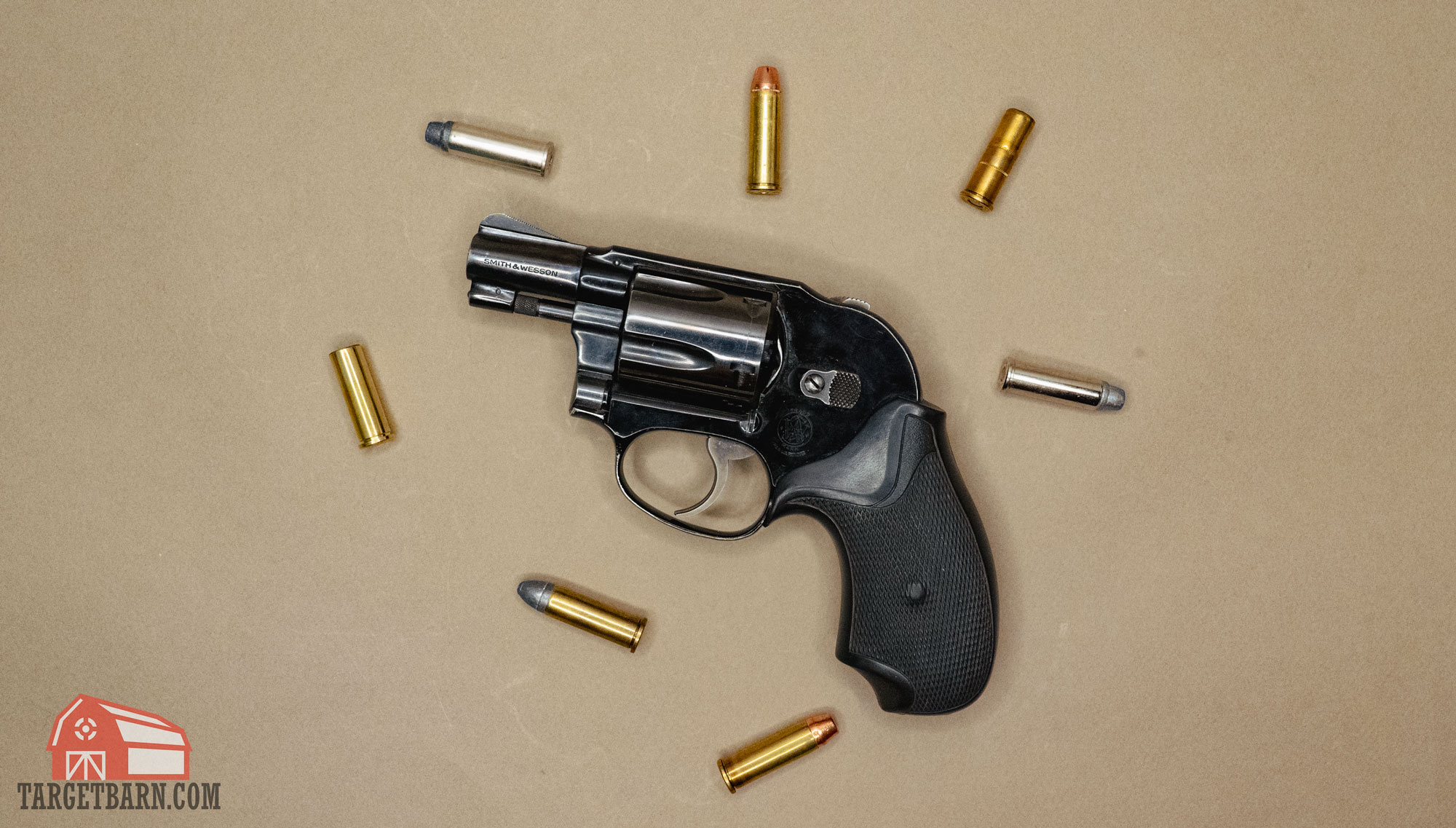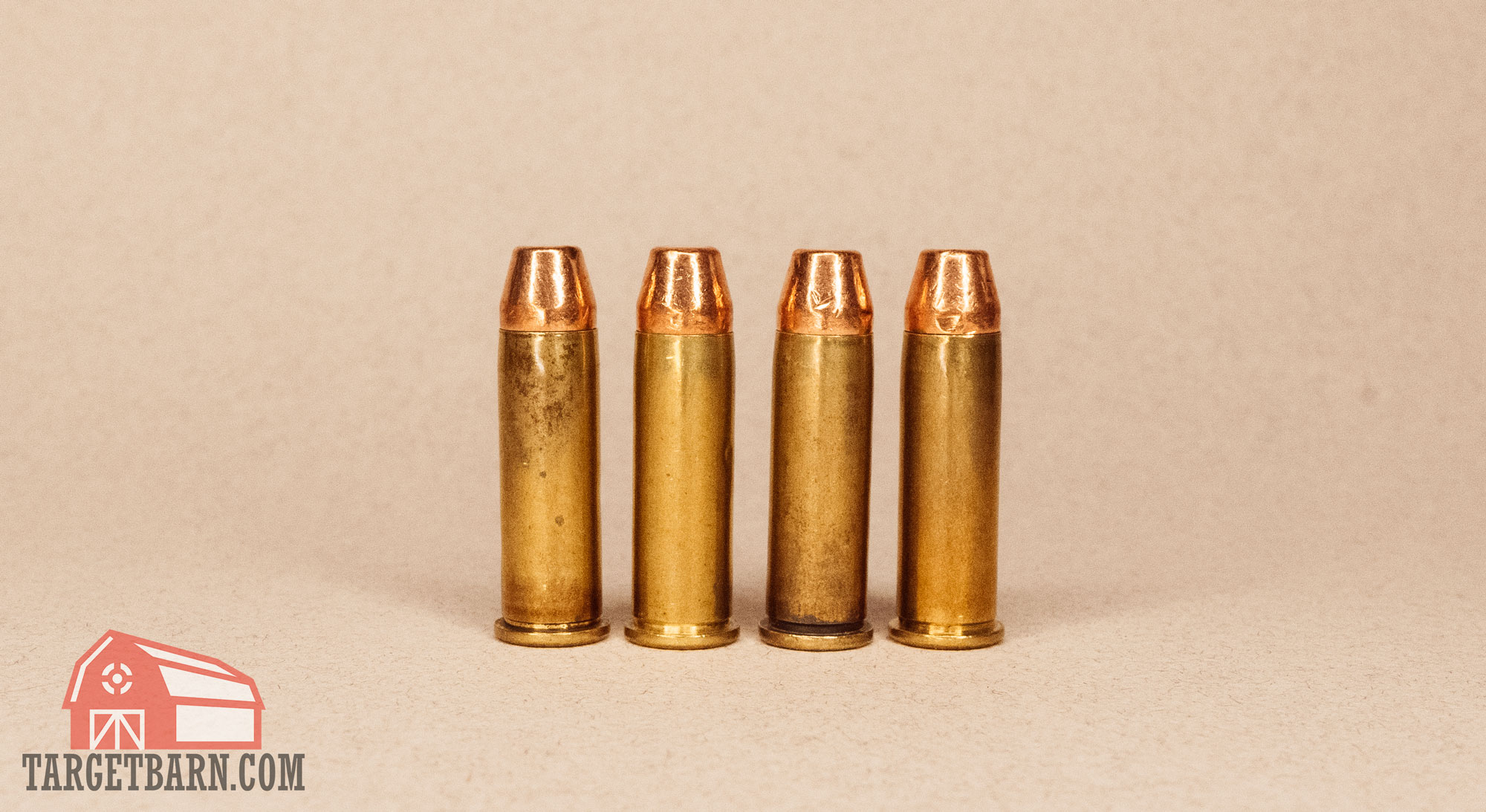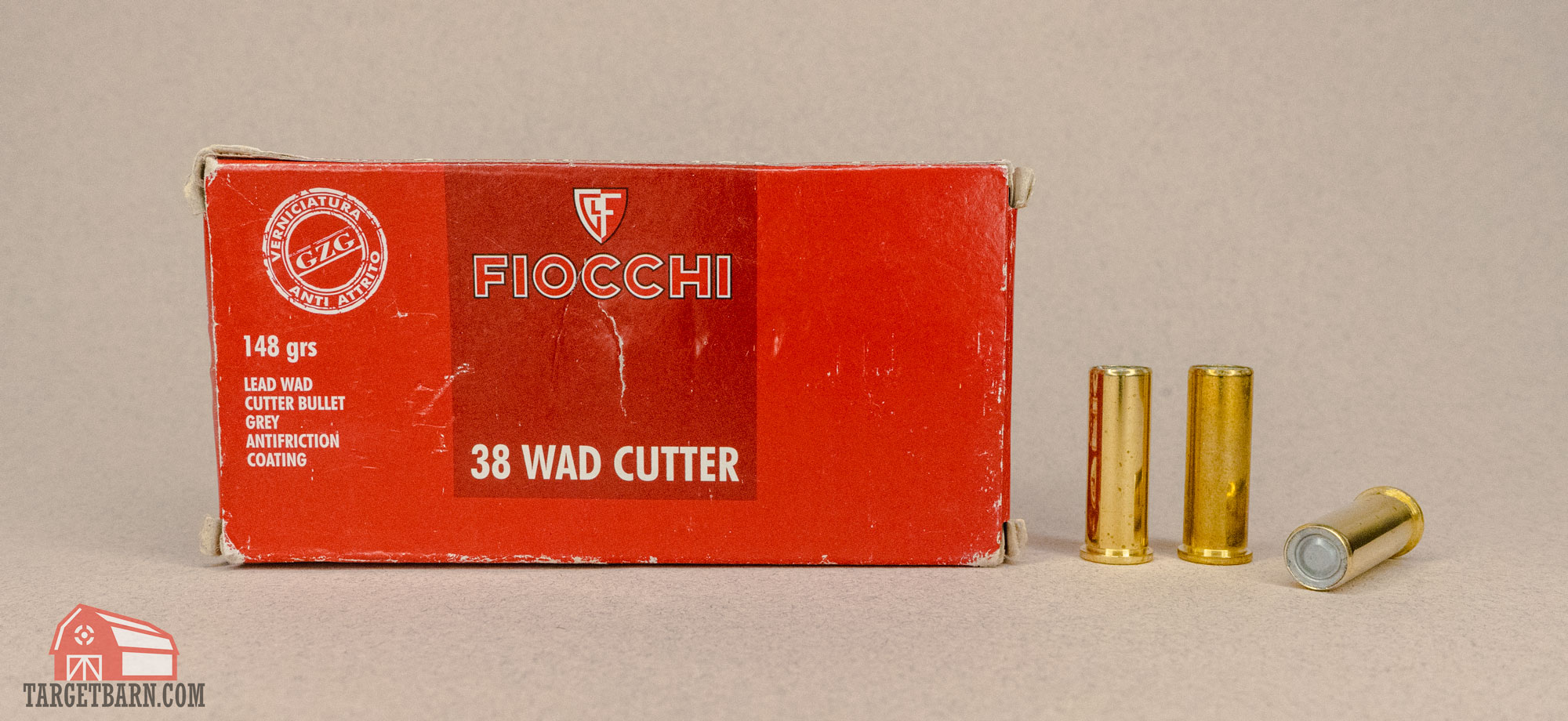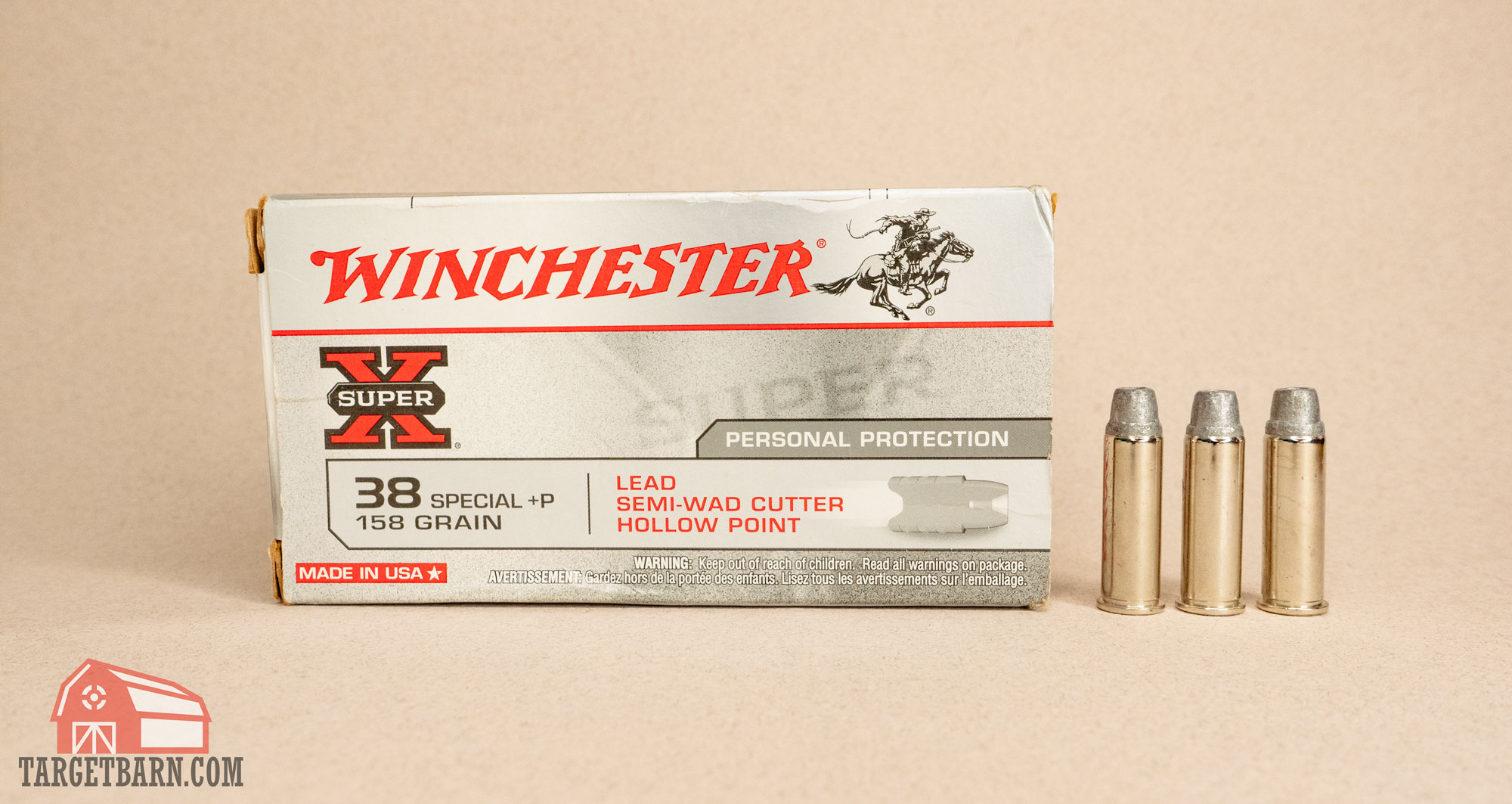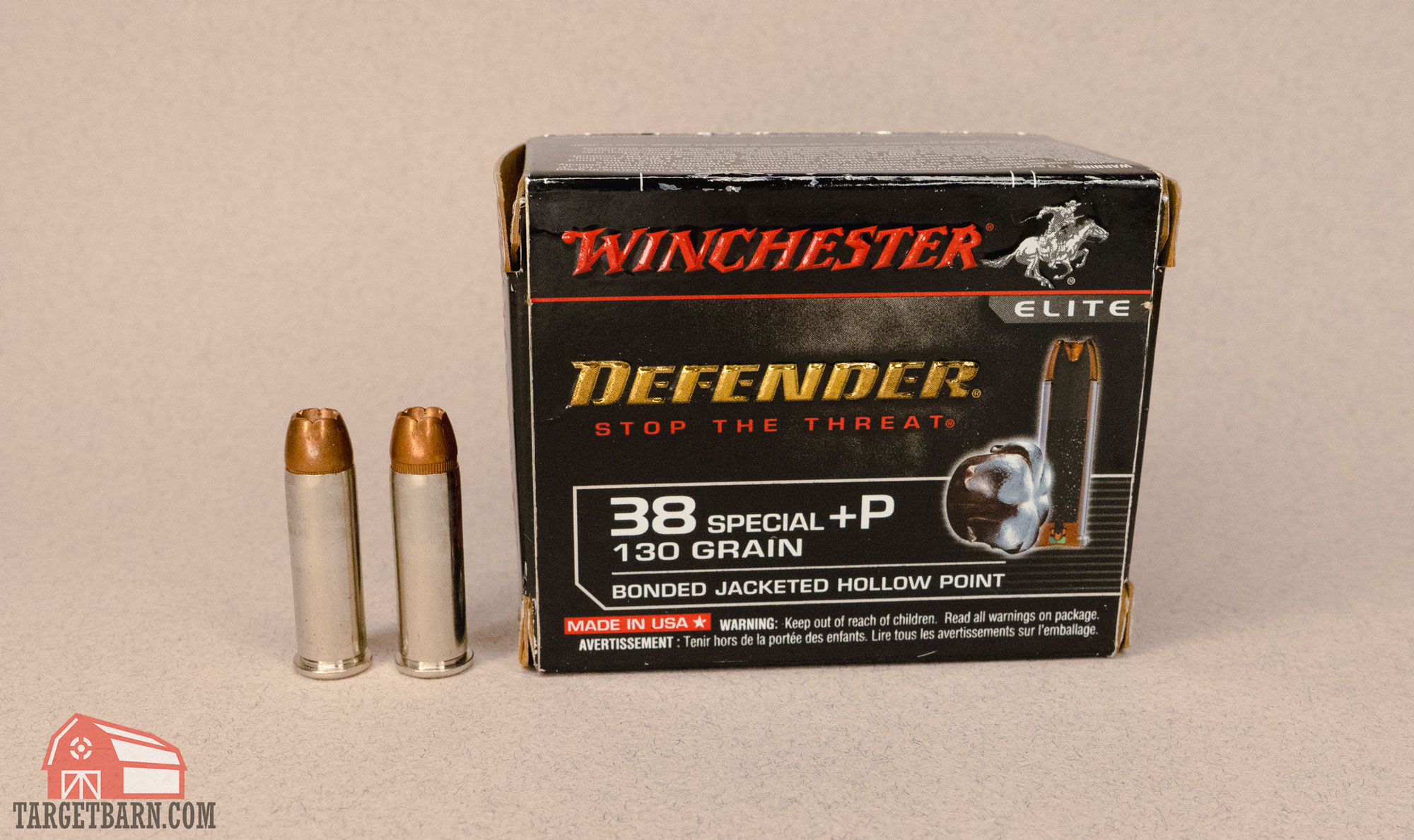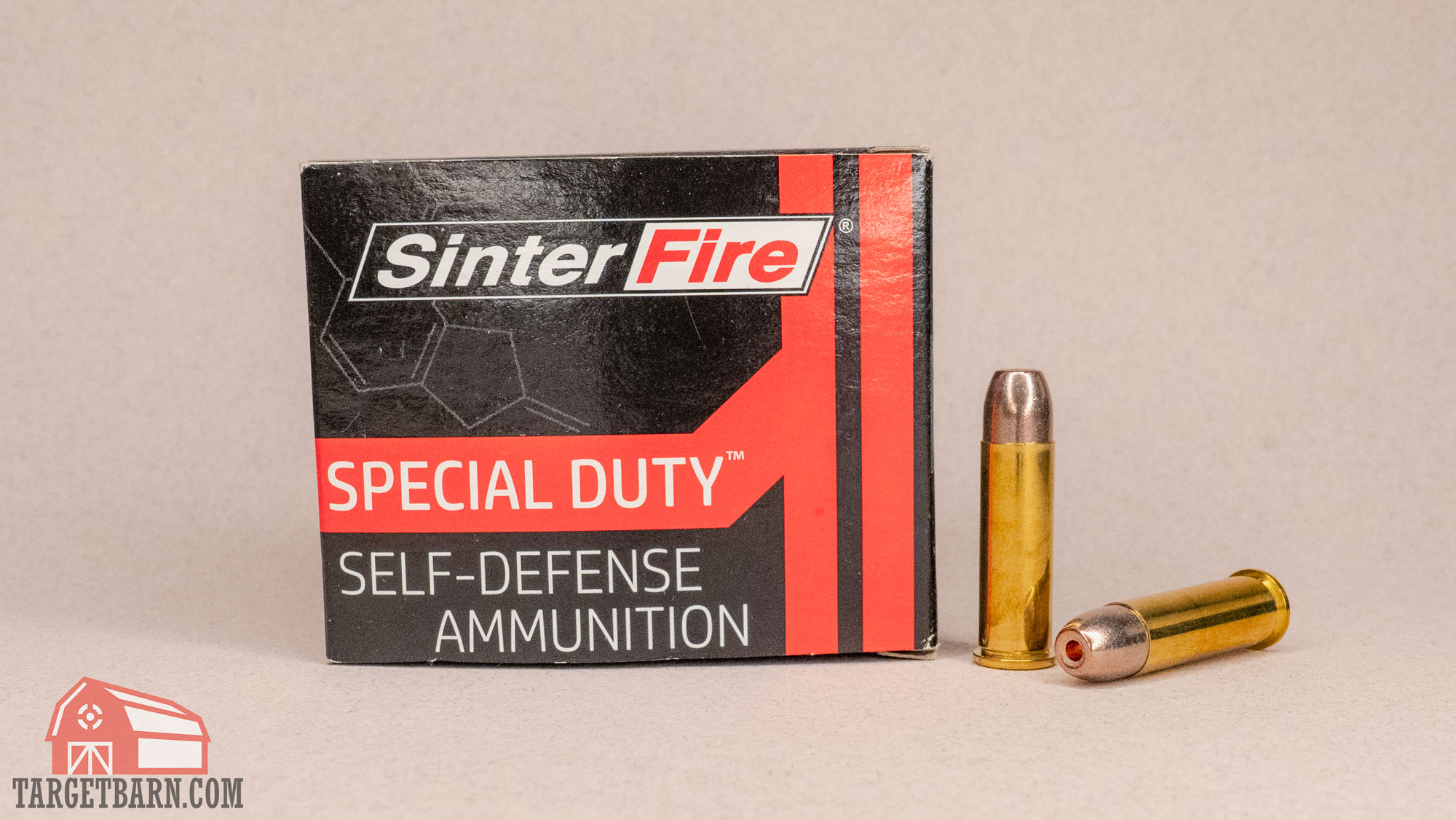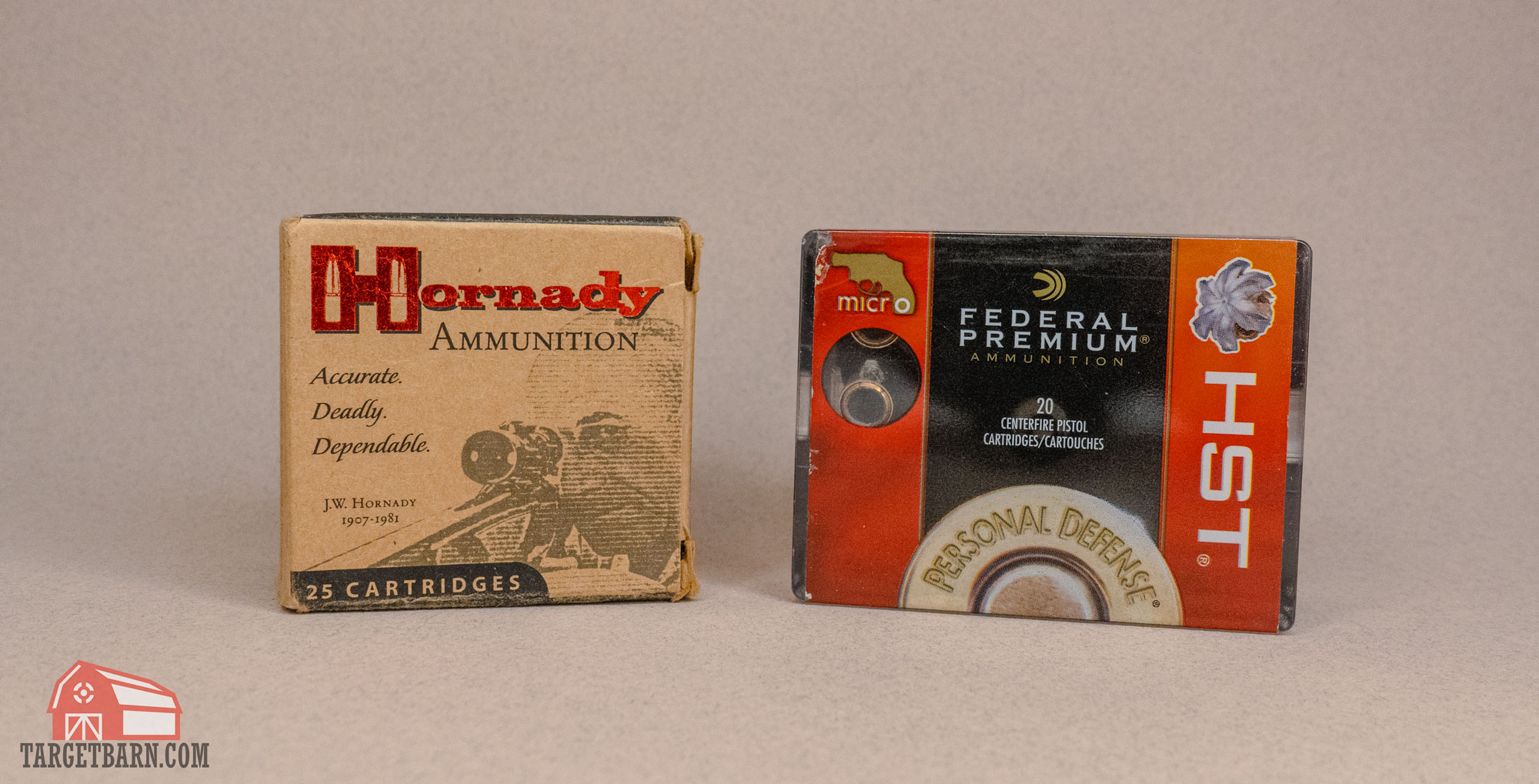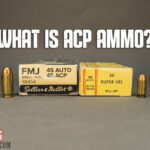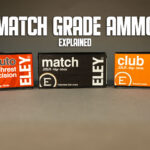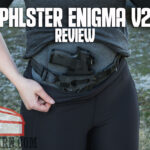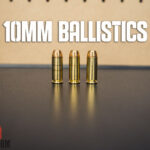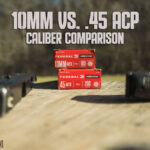When selecting rounds for your .38 revolver, there are many different .38 Special ammo types to choose from. Broadly speaking, there are .38 Special rounds for self defense and range training. However, you’ll find some types of .38 Special fit into both categories.
Let’s take a look at the .38 Special ammo types and what their best uses are.
What are the .38 Special Ammo Types?
There are many types of .38 Special ammo that serve different purposes. The most common .38 Special ammo types you’ll find are:
- Full Metal Jacket
- Total Metal Jacket
- Wadcutter
- Semi-Wadcutter
- Lead Round Nose
- Jacketed Hollow Point
- Soft Point
- Frangible
Next we’ll break down these common types of .38 Special rounds and even more that fall into the same categories.
Full Metal Jacket (FMJ)
Use type: range training
Full metal jacket ammo consists of a soft core, often lead, which is covered by a casing of hard metal, called the jacket. The jacket is a harder metal that is often copper, but sometimes a steel alloy or a hybrid of different metals. It covers all of the bullet except for the base.
Shooters most often use FMJ rounds for high round count shooting like range training and competition. That’s because FMJ ammo is an affordable choice, especially when purchased in bulk. Full metal jacket rounds also have less fouling and more dependable feeding thanks to its jacket.
Full metal jacket rounds are not a great choice for self defense. That’s because the jacket prohibits the bullet from expanding, which is an important feature of a defensive round in order to stop a threat.
Popular .38 Special FMJ rounds include Federal American Eagle .38 Special 130gr. FMJ and Fiocchi .38 Special 130gr. FMJ.
There are different types of FMJ rounds available, including:
- Truncated Cone – cone-shaped nose with the top cut off to create a flat-tipped end
- Flat Nose – also known as meplat, bullet has a flat top
- Boat Tail – sides taper inward towards the base
Total Metal Jacket (TMJ)
Use type: range training
A total metal jacket round has a bullet that is fully encapsulated by a jacket. Total metal jacket rounds differ from a FMJ round in that the TMJ round has a copper jacket that fully encloses the entire bullet, including the lead base. It is also known as FMJ-FEB where “FEB” is short for “fully enclosed base.”
The major advantage of TMJ bullets is that, because the lead projectile is completely enclosed by the jacket, you are exposed to less vaporized lead in the air. This makes them safer for use on indoor ranges than FMJ rounds. This also makes them even cleaner to use in your gun.
Like the FMJ rounds, TMJ ammo is not the ideal choice for self defense, but is a great choice for high round count shooting. Speer Lawman .38 Special 158gr. TMJ is a solid choice to shoot through your revolver, especially if shooting indoors.
Wadcutter (WC)
Use type: range training, self defense
A wadcutter is a pistol round that has a bullet with a completely flat face. The flat nose of the projectile sits flush with the case mouth.
Wadcutter rounds are great for target shooting because they put clean, easy to score holes in paper targets. They also have applications as a defensive round when paired up with small guns like .38 Special J-frames. That’s because out of small J-frame revolver, wadcutters like the Federal Gold Medal Match 148gr. WC perform better than hollow point bullets.
Semi-Wadcutter (SWC)
Semi-Wadcutter rounds are related to the WC rounds, but with some notable differences. Semi-wadcutters look like someone put a cone on top of a wadcutter, then cut the tip of the cone off. They were originally designed for target shooting, but popularized as a hunting round thanks to gun writer Elmer Keith.
Semi-wadcutter rounds provide a little more accuracy at longer distances than WC bullets because of their higher velocity and power.
You may also see them listed as Lead Semi-Wadcutter (LSWC).
Semi-Wadcutter Hollow Point (SWCHP) or Hollow Point Semi-Wadcutter (HPSWC)
The semi-wadcutter hollow point bullet is simply a semi-wadcutter with a hollow point bullet tip. They provide immediate expansion and efficient transfer of energy upon impact.
Hollow Back Wadcutter (HBWC)
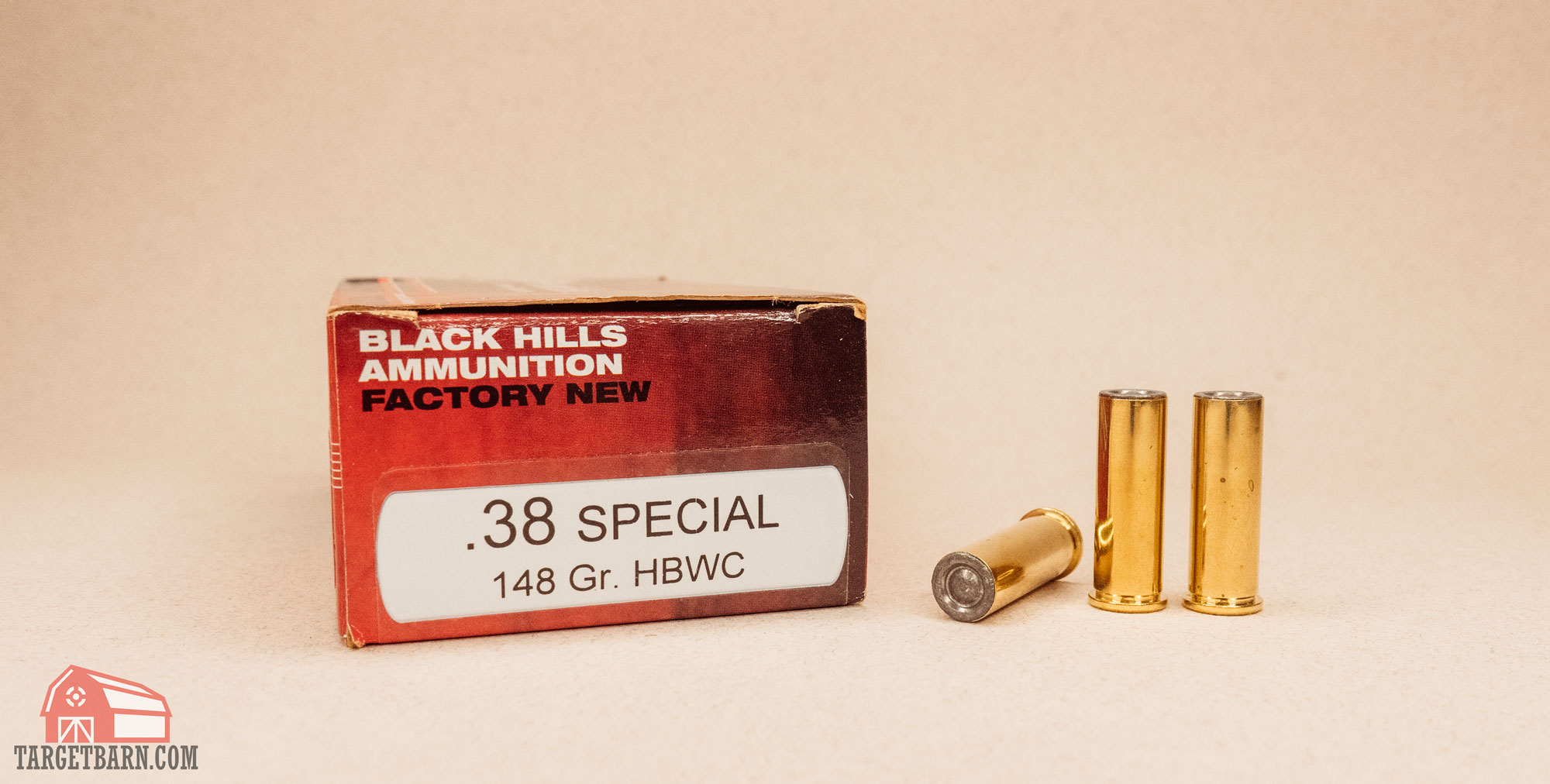
Hollow back wadcutters, also known as hollow base wadcutters, are similar to an upside down hollow point, in that the hollow is at the base of the bullet instead of the tip. The idea behind the hollow base is that it will seal better to the rifling, providing more consistency and accuracy. The HBWC also has a forward center of gravity due to its hollow base, giving it more stability during travel and, theoretically, better accuracy.
Double-Ended Wadcutter (DEWC)
Both ends of a double-ended wadcutter are the same flat shape.
Bevel Base Wadcutter (BBWC)
The base of the bullet is sloped inward to make it easier to place into the casing.
Lead Round Nose (LRN)
Use type: range training

A lead round nose bullet is a solid lead bullet that tapers to a blunt. Lead round nose bullets are basically full metal jacket bullets but without the jacket. Shooters most often use lead round nose rounds in revolvers and lever-action rifles. Because LRN rounds don’t have a jacket, they don’t function as reliably as FMJ rounds in semi-autos. However, because revolvers and lever-actions don’t use an automatic feeding mechanism, they have no problem with LRN rounds.
The lack of a jacket also means LRN rounds can be a more economical choice for range rounds than jacketed rounds. The down-side to having no jacket is that the exposed lead bullet comes in direct contact with the bore, leaving behind residue. It also means that the lead will become aerosolized when shooting, making it a bad choice for indoor shooting.
Jacketed Hollow Point (JHP)
Use type: self defense
The jacketed hollow point bullet has a hollowed out center tip and a full-length, hard metal jacket. Designed for self defense, the hollow point tip provides expansion upon penetration, creating a wider wound channel. However, out of small J-frame revolvers, most hollow point bullets either don’t expand or don’t penetrate deep enough. So, if you’re looking for a self defense round for your smaller revolver, you may consider a wadcutter instead.
Semi-Jacketed Hollow Point (SJHP)
Use type: self defense
With a semi-jacketed hollow point, the lead core of the bullet extends past the jacket. Leaving the lead tip exposed aids in bullet expansion. These are a popular revolver round as the lack of a full jacket hinders reliability in semi-autos.
Hollow Point (HP)
Use type: self defense
The hollow point bullet is like the jacketed hollow point, just without the hard metal jacket. The jacket provides reliability in semi-autos and decreases lead residue in the barrel. While the feeding issue might not matter in your .38 revolver, the lack of a jacket may require you to clean your gun more often.
Soft Point (SP)
Use type: range training, self defense
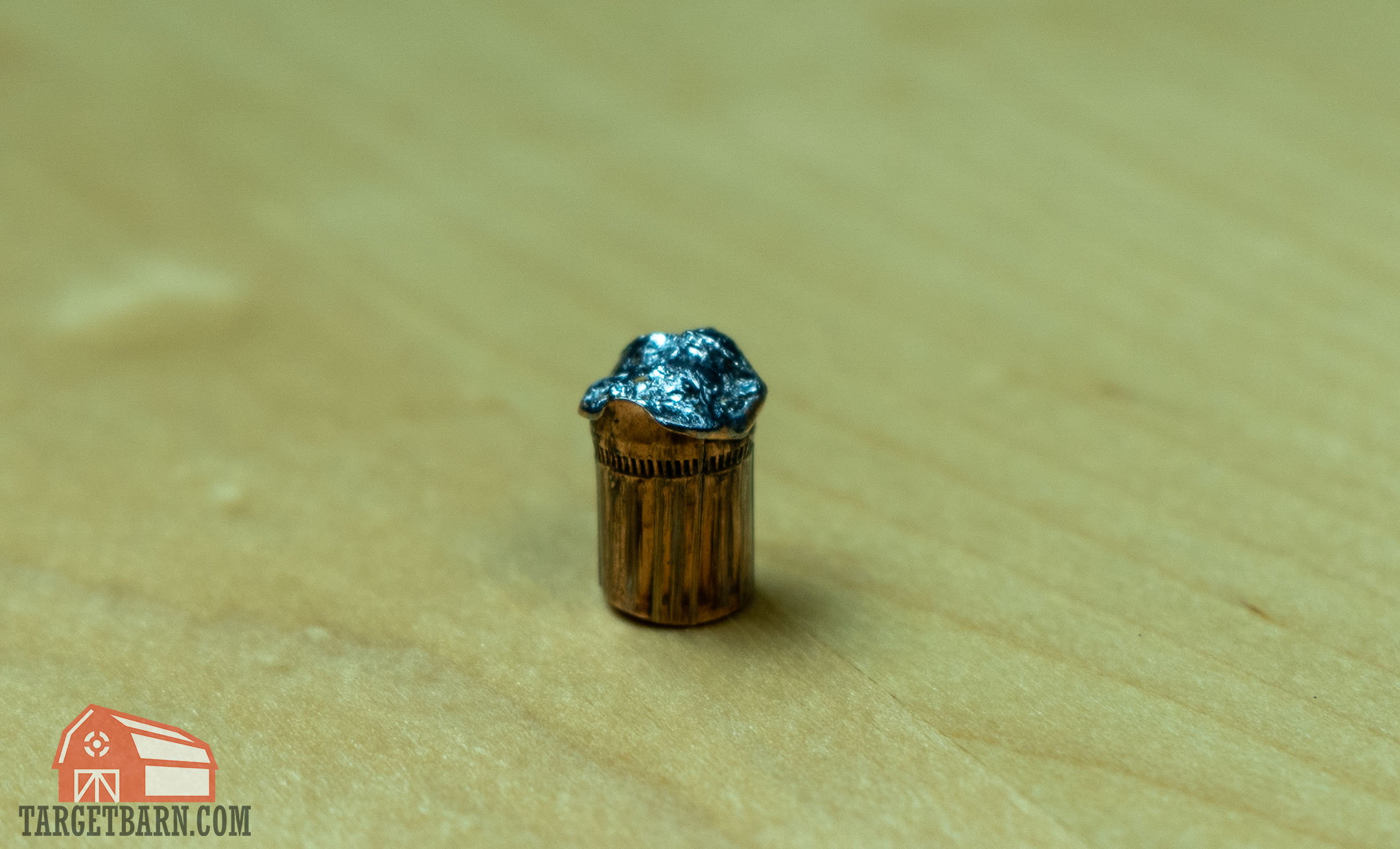
The soft point bullet is nearly completely jacketed, but with an exposed lead nose. The lack of jacket on the nose allows for increased expansion upon penetration and tumbles to create a deep wound channel. The partial jacket reduces bore fouling and prevents deformation during ignition. The SP bullet is a popular choice to use in revolvers and semi-auto rifles for hunting and self defense purposes.
Frangible
Use type: range training, self defense
Most simply put, frangible ammo uses a projectile that shatters or disintegrates upon impact with a hard surface. The purpose is to reduce penetration through immediate barriers like walls. There are two broad types of frangible rounds: frangible training ammo and frangible defensive round.
The primary advantage of frangible ammo is that they won’t produce splash back on steel targets like FMJ rounds will. This facilitates safer training in confined environments and when shooting steel at closer distances.
Other .38 Special Ammo Types
Above we’ve covered the primary .38 Special ammo types. You may also find manufacturers have their own branded bullet name or design, usually pulling from the common types we’ve covered. For example, in the Hornady Custom .38 Special, Hornady uses the XTP bullet which is a jacketed hollow point designed to deliver strong terminal performance.
Ultimately, when shopping for .38 Special ammo for sale, you want a round that is designed for your intended purpose and practice with that ammo to ensure it runs soundly through your revolver.

